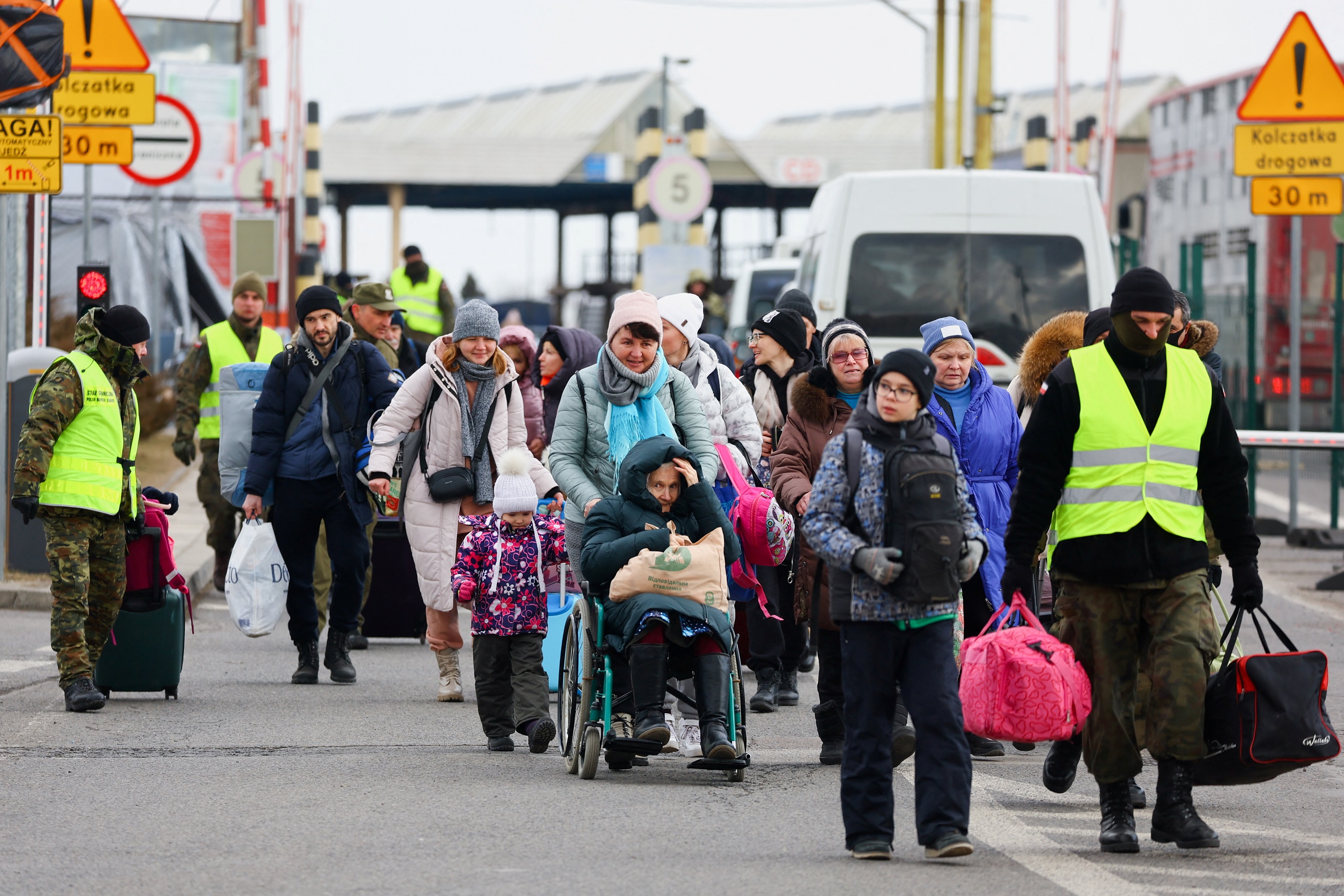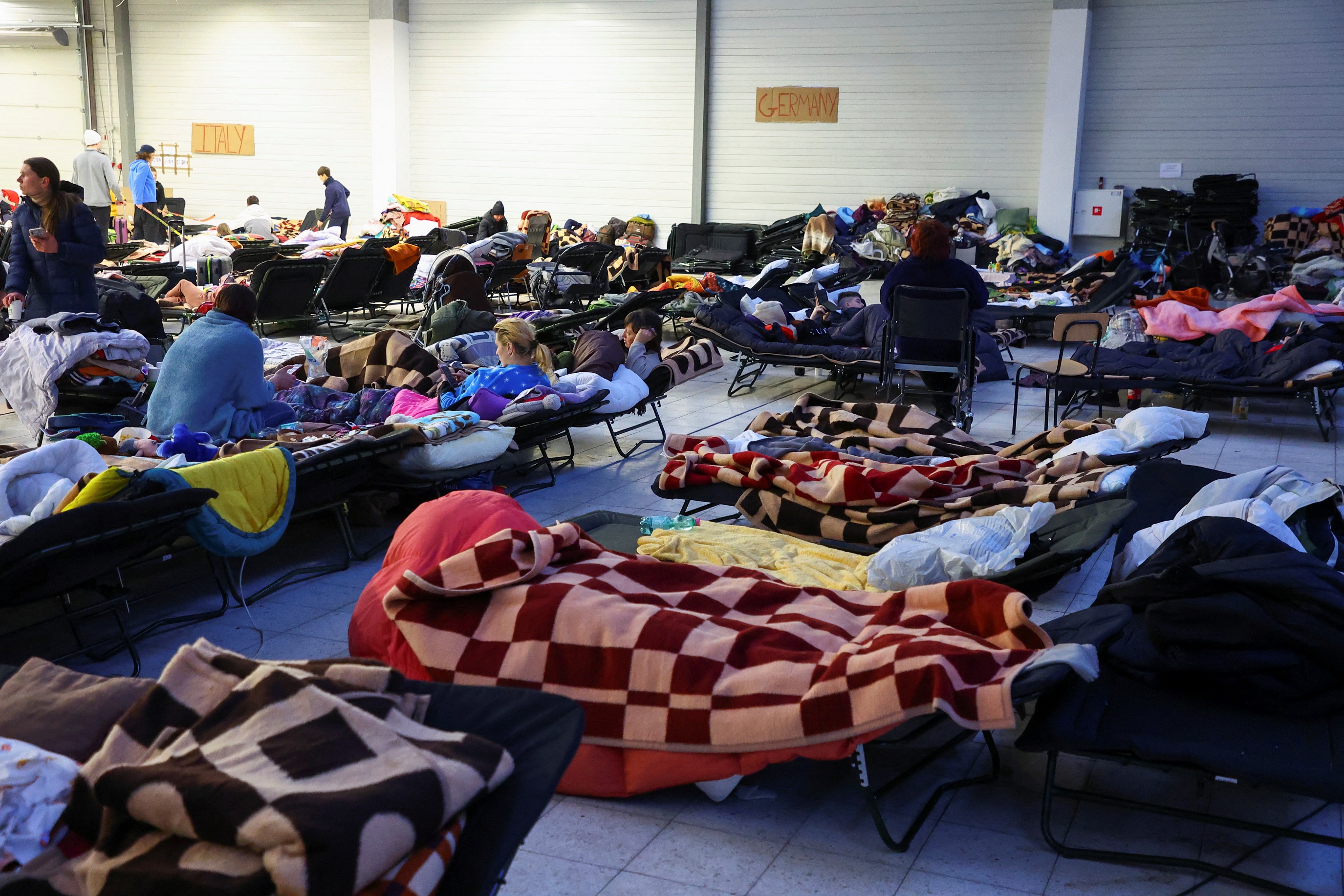EU warns Ukraine refugee crisis a 'big challenge'
Sign up now: Get ST's newsletters delivered to your inbox

People cross the border from Ukraine to Poland, after fleeing Russia's invasion of Ukraine, on March 10, 2022.
PHOTO: REUTERS
Follow topic:
BRUSSELS (AFP) - A top European Union official warned on Thursday (March 10) the Ukraine refugee crisis was a "big challenge" for the bloc and set to get worse, but insisted the 27 nations were showing "unprecedented" unity.
"Unfortunately, things are getting worse, the bombs are falling, more people are being killed, we are going to see more and more people fleeing. We dont know exactly how many but I should guess many millions will come," EU home affairs Commissioner Ylva Johansson told journalists.
"So, it is going to be really, really a big, big challenge. It is already a big challenge but it is going to get worse, we have to prepare for that."
More than two million refugees have flooded into the EU in the two weeks since Russian President Vladimir Putin launched an invasion of his pro-Western neighbour.
The bloc has rushed to grant those fleeing temporary protection as it grapples with one of the fastest growing crises on the continent since World War II.
Johansson said many of those who had arrived in the first wave from Ukraine were able to stay with friends or relatives in the EU, but warned that situation could change as more refugees come.
She said there were "big concerns" over taking care for the huge number of children arriving as they make up roughly half of all people crossing the border.
"It is extremely important now that we focus on giving these children some kind of normality, to make them go to school, or to childcare, this is also an opportunity for parents to be able to work and be part of society," she said.
She repeated warnings over the risk posed to unaccompanied minors by trafficking gangs and said the EU was activating a network to counter the threat.
The speed of the EU's reaction has contrasted with the internal divisions that wracked the bloc when a huge wave of refugees from mainly Syria, Iraq and Afghanistan arrived in 2015 and 2016.
"It is totally different I must say. We are much better prepared," Johansson said.
"What we are seeing now is an unprecedented action and solidarity from member states towards each other and towards the Ukrainian refugees."

People fleeing Russia's invasion of Ukraine rest at a temporary accommodation centre, in Korczowa, Poland.
PHOTO: REUTERS
Ukraine's neighbours have been on the front line of the crisis, with Poland receiving some 1.2 million of the arrivals.
Johansson said that so far other EU member states were "cooperating" in receiving refugees and that there was not yet a need to set up a formal process for redistributing the refugees.
"It might come," she said. "I could foresee for example for special groups, like children with special needs, orphans, unaccompanied minors, people with special health situations or disabilities."
Brussels has announced €500 million (S$740 million) in initial emergency funding to help deal with the humanitarian consequences of the war.
Officials are also pushing to release another €420 million in additional support to help integrate arrivals and say that billions more could go towards supporting the refugees.

